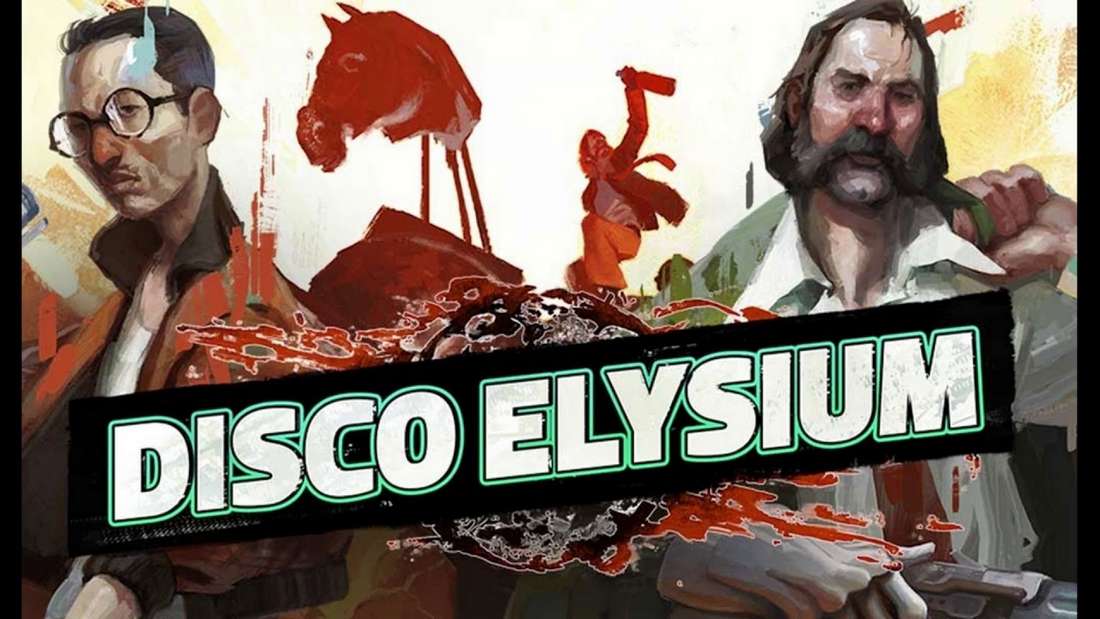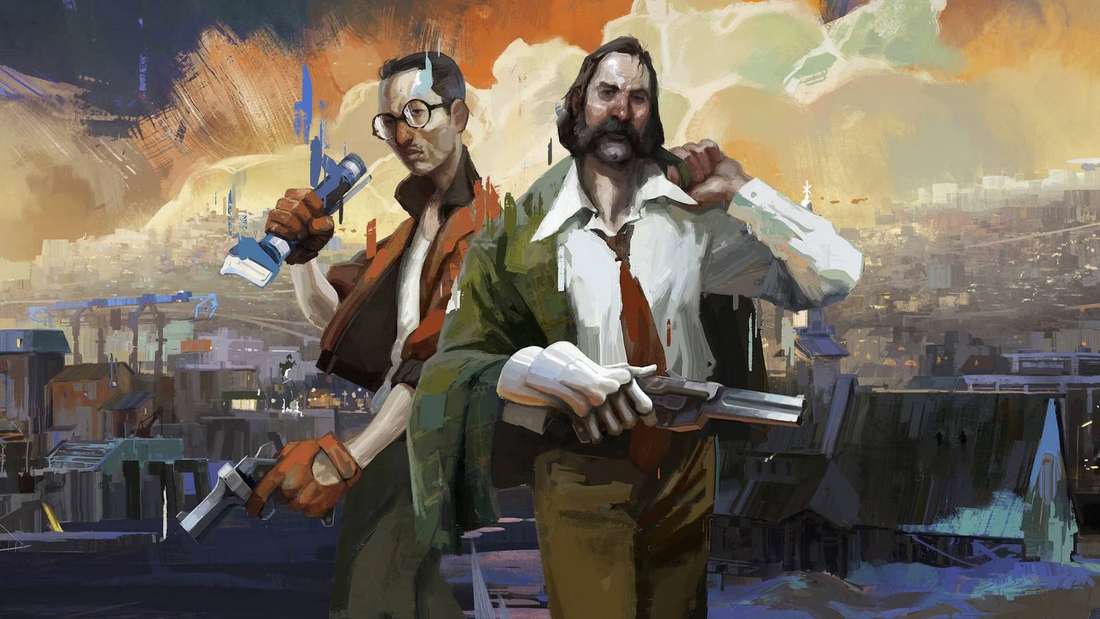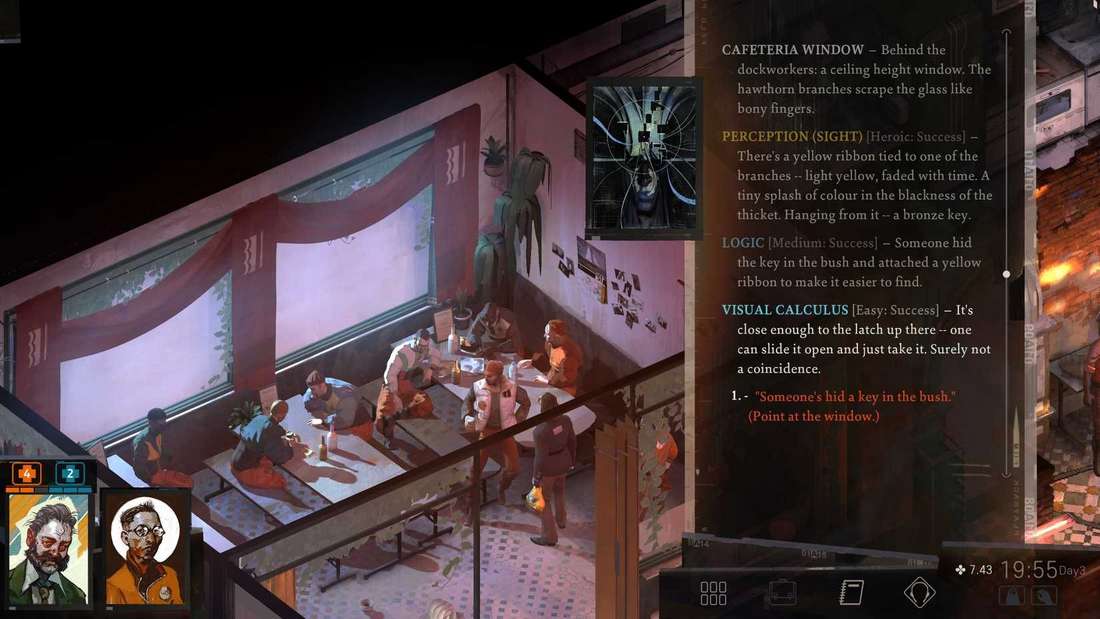Disco Elysium’s ‘Visual Calculus’: The Forensics Skill That Redefines Detective Gaming
Popular Now
 Sonic the Hedgehog™ Classic
Sonic the Hedgehog™ Classic
 Valorant
Valorant
 Counter-Strike 2
Counter-Strike 2
 Candy Crush Saga
Candy Crush Saga
 Free Fire Max
Free Fire Max
 Fall Guys
Fall Guys
 EA SPORT FC 25
EA SPORT FC 25
 Black Myth: Wukong
Black Myth: Wukong
 Toca Boca World
Toca Boca World
 Fortnite
Fortnite  Few role-playing games have managed to capture the sheer intellectual rigor and existential crisis of a true detective investigation quite like Disco Elysium. While the game is famous for its fractured psyche and deep political commentary, it is the seemingly mundane Intellect Skill, Visual Calculus, that provides the most visceral, high-value sense of being a professional crime solver. This mechanic is not a simple game prompt; it is an immersive simulation of forensic reconstruction, making the player feel genuinely competent even as their character is a total wreck.
Few role-playing games have managed to capture the sheer intellectual rigor and existential crisis of a true detective investigation quite like Disco Elysium. While the game is famous for its fractured psyche and deep political commentary, it is the seemingly mundane Intellect Skill, Visual Calculus, that provides the most visceral, high-value sense of being a professional crime solver. This mechanic is not a simple game prompt; it is an immersive simulation of forensic reconstruction, making the player feel genuinely competent even as their character is a total wreck.
Visual Calculus transcends standard video game “investigation modes.” When successful, it allows the amnesiac Detective Harry Du Bois to mentally recreate a dynamic, three-dimensional scene of events based solely on subtle physical evidence. This ingenious skill is a cornerstone of the game’s non-combat RPG system, establishing a new Gold Standard for interactive narrative and Detective Game Mechanics.
 The Mechanism of Genius: How Visual Calculus Works
The Mechanism of Genius: How Visual Calculus Works
Unlike simple Perception checks that reveal a hidden object, Visual Calculus is a profound application of the detective’s latent intelligence and training. It is the ability to interpret the laws of physics and mathematics at a glance to determine a sequence of events. When the player engages with a key piece of evidence—such as a shattered window, a scattering of bullet holes, or a tire track—a successful Visual Calculus check triggers a moment of mental clarity, presented as a highly stylized and crucial narrative cutscene.
- Forensic Reconstruction: The screen overlays a ghostly, luminous representation of the past action. The player doesn’t just read about the event; they see the bullet’s parabolic trajectory, the force vectors that splintered the glass, or the exact gait and shoe-size of an unseen assailant.
- High-Skill Roleplaying (High-CPC Keywords: Advanced CRPG Mechanics, Non-Linear Deduction, Skill-Based Investigation): Investing heavily in Visual Calculus allows the player to embody the “Thinker” archetype—a forensic scientist and tactical mind. Crucially, a high skill level bypasses many frustrating search mechanics, rewarding the player who prioritizes Intellectual Dexterity over brute force. This directly appeals to the High-Engagement segment of the CRPG market seeking Deep Role-Playing opportunities.
- Narrative Authority: The success of the check often provides definitive, uncontestable answers that directly inform the next steps of the investigation, giving the player a powerful sense of Narrative Control and expertise.
The system is a brilliant metaphor for the power of the experienced, focused mind, directly translating a character stat into a tangible, satisfying “Aha!” moment.
 The Detective Fantasy Realized: Beyond the Point-and-Click
The Detective Fantasy Realized: Beyond the Point-and-Click
Many traditional mystery games rely on players finding keys for locks or combining inventory items in abstract ways. Disco Elysium radically departs from this model by integrating the investigative work directly into the character’s internal skill system. Visual Calculus is a key component of this approach, selling the fantasy of the Hard-Boiled Detective better than almost any other mechanic in gaming history.
- Internal Dialogue & Context: A failed Visual Calculus check will often be followed by internal dialogue (from the skill itself) admitting the lack of required data or the detective’s mental fog, providing a narrative reason for the failure rather than just a gameplay roadblock. This preserves immersion in the Game Review and Deep Dive Analysis segments of the community.
- Rewarding Diligence: The difficulty of certain Visual Calculus checks can be lowered by obtaining passive bonuses from conversations or unrelated side-quests. This emphasizes that successful investigation is a holistic effort—a truly great detective must be a master of observation, rhetoric, and compassion to succeed at forensics. This ties the High-Value Forensic Gameplay to the Conversational RPG core.
The ability to look at a scene of chaos and mentally construct the truth is the ultimate power fantasy for a detective narrative, and Disco Elysium delivers this with unmatched flair and narrative weight.
Competitive Analysis and Market Impact
The success of the Visual Calculus system has had a noticeable impact on subsequent Indie RPGs and Narrative Adventure Games. It has raised the bar for what players expect from deductive reasoning mechanics in games, shifting focus from “what item do I need?” to “what does my character know?”
The game’s revolutionary approach to skills—where they are not just numbers but voices in your head—means Visual Calculus can also lie or misinterpret data if the player’s skills are developed poorly or their character is too eccentric. This flawed, human element prevents the system from becoming a mere “I Win” button, adding necessary risk and complexity to the Premium Gaming Experience.
Conclusion: The Intellectual Thriller of Disco Elysium
Visual Calculus is more than just an Intellect skill; it is a profound narrative tool that brilliantly externalizes the detective’s inner mental processes. It allows the player to truly inhabit the mind of a forensic expert, transforming mundane physical evidence into thrilling, decisive revelations. For players seeking a Deep Role-Playing Experience where intellectual choices carry more weight than combat, Disco Elysium and its signature Visual Calculus mechanic stand as the definitive purchase in the Modern CRPG landscape. It’s the closest gaming has ever come to putting a digital Sherlock Holmes deerstalker on the player’s head, making it an essential Must-Play RPG and a High-ROI choice for any dedicated fan of the genre.











 The Mechanism of Genius: How Visual Calculus Works
The Mechanism of Genius: How Visual Calculus Works The Detective Fantasy Realized: Beyond the Point-and-Click
The Detective Fantasy Realized: Beyond the Point-and-Click